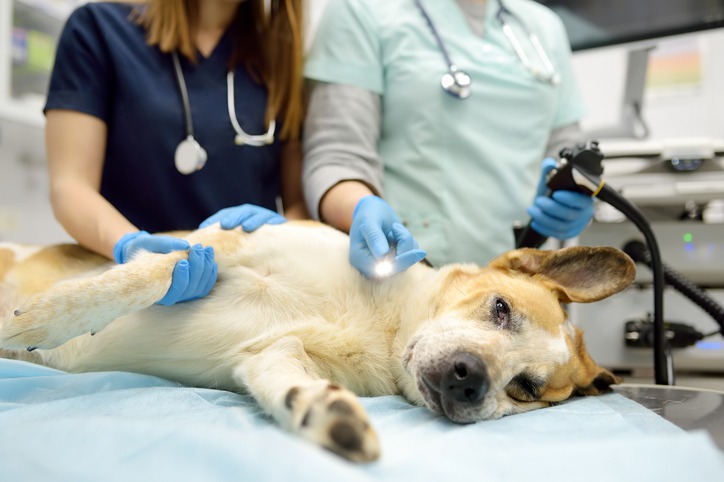Just like humans, pets require regular dental care to maintain their health and well-being. Recognizing the signs that your pet needs a dental cleaning can be crucial in preventing more severe health issues. From bad breath to difficulty eating, there are clear indicators that your furry friend may need professional dental attention. Understanding these signs can help you take timely action for your pet’s oral health.
Recognizing the signs that your pet needs a dental cleaning is essential for maintaining their oral health and preventing more serious issues. Here’s a comprehensive guide to identifying when your pet may require a professional dental cleaning.
1. Persistent Bad Breath
One of the most noticeable signs that your pet needs a dental cleaning is persistent bad breath or halitosis. If you’ve observed that your pet’s breath has become unusually foul despite regular brushing and a good diet, it may indicate plaque buildup, gingivitis, or periodontal disease. Bad breath is often a symptom of underlying dental issues that need professional attention from a veterinary dentist in Groton, CT.
2. Visible Plaque or Tartar Build-Up
Plaque and tartar buildup are common dental issues in pets. Plaque is a soft, sticky film of bacteria that can harden into tartar if not removed. If you notice yellowish-brown tartar on your pet’s teeth, especially along the gum line, it’s a clear sign that your pet requires a dental cleaning. Regular professional cleanings can effectively remove tartar and prevent further dental problems.
3. Red or Swollen Gums
Healthy gums should be pink and firm. If you observe redness, swelling, or bleeding of your pet’s gums, it may be a sign of gingivitis or periodontal disease. Gingivitis is often caused by plaque and tartar buildup, and if left untreated, it can progress to more severe dental issues. A veterinary dental cleaning can address gum inflammation and prevent more serious conditions.
4. Difficulty Eating or Chewing
If your pet is experiencing difficulty eating or chewing or seems reluctant to eat hard foods, it may be due to dental pain or discomfort. Various issues, including tooth decay, gum disease, or oral infections, can cause this. If you notice changes in your pet’s eating habits or show signs of pain while eating, a dental cleaning may be necessary to address underlying problems.
5. Loose or Missing Teeth
Loose or missing teeth are clear indicators of severe dental disease. If you notice that your pet’s teeth are loose or have fallen out, it is crucial to seek veterinary care immediately. Loose teeth can result from advanced periodontal disease, which requires professional intervention to manage and treat.
6. Excessive Drooling
Excessive drooling or salivation can indicate dental issues, such as oral infections or severe dental disease. If your pet is drooling more than usual or has saliva that appears discolored or contains blood, a veterinarian must examine their teeth and gums. A dental cleaning may be required to address the underlying cause of the excessive drooling.
7. Behavioral Changes
Changes in your pet’s behavior, such as irritability, decreased activity, or increased aggression, can sometimes be linked to dental pain or discomfort. Pets often mask their pain, so behavioral changes can be an important clue that something is wrong. If you notice any of these changes and suspect dental issues, it might be wise to consider cat & dog boarding accommodations to address dental problems. Professional dental cleaning may be necessary to alleviate discomfort and resolve underlying issues.
8. Tumors or Growths in the Mouth
The presence of tumors or abnormal growths in your pet’s mouth should be evaluated by a veterinarian as soon as possible. These growths can be a sign of oral cancer or other serious conditions. A thorough dental cleaning and examination can help identify and address these issues early, improving your pet’s prognosis and overall health.
9. Difficulty Breathing
In some cases, severe dental disease can lead to infections that affect your pet’s respiratory system. It could be related to oral health issues if you notice changes in your pet’s breathing patterns, such as wheezing or difficulty breathing. Prompt veterinary care is essential to address both dental and respiratory concerns.
10. Regular Vet Check-Ups
Routine veterinary check-ups are crucial for monitoring your pet’s dental health. During these visits, your vet will assess the condition of your pet’s teeth and gums and recommend a dental cleaning if needed. Regular check-ups help catch dental issues early and ensure your pet receives the appropriate care to maintain oral health. If you’re also looking to stay on top of your pet’s overall wellness, visit this website: https://www.tlc4pets.com/site/veterinary-services-groton/cat-dog-vaccinations-parasite-prevention for more info on pet vaccination and parasite prevention.
Wrapping Up
Maintaining your pet’s dental health is vital for their well-being and quality of life. By recognizing the signs that your pet needs a dental cleaning—such as persistent bad breath, visible tartar buildup, and changes in eating habits—you can take proactive steps to address dental issues and prevent more severe conditions. Regular veterinary check-ups and professional cleanings are key in ensuring your pet’s teeth and gums remain healthy, contributing to their overall health and happiness.




